Here are 6 festivals honoring the dead that are way better than Halloween
South Korean divers perform a traditional masked dance to promote an event to celebrate the upcoming Chuseok holiday at an aquarium in Seoul on Sept. 1, 2014. South Koreans celebrate the three-day Korean Thanksgiving holiday with family members to mark the mid-autumn harvest from September 7 to 9.
It's Halloween again! Yep, that one day of the year when it's safe to dress up as an Ebola nurse and knock on a stranger's door and ask for candy.
And it's not just Americans who are celebrating.
Halloween is now a major global event with retailers around the world stocking their shelves with plastic Jack-o'-lanterns, witches hats and scary face masks for consumers keen to dress up and try their hand at trick-or-treating.
But despite the commercial onslaught of Halloween, a number of countries have managed to preserve the ancient traditions of their own festivals of the dead.
Here are six that are way better than Halloween:
1) Dia de los Muertos, Mexico
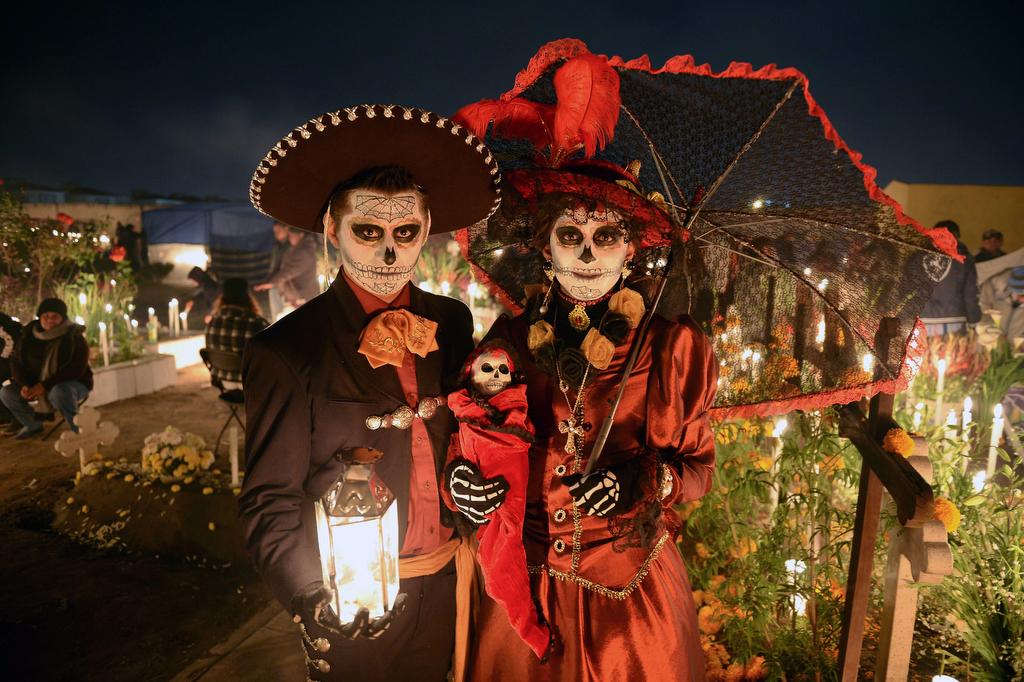
Ok, so dressing up as a dead person is a tad Halloween'ish. But leaving that aside, Mexico’s Day of the Dead, or Dia de los Muertos, is one of the most important festivals of the year. Mixing indigenous beliefs with Catholic doctrine, Day of the Dead is celebrated on Nov. 1 when the spirits of the deceased can return to the living world to hang out with their loved ones. Mexicans leave offerings of their dearly departed's favorite food and tipple, usually tequila, on their tomb along with candy skulls and fresh marigolds. Some also build altars in their homes and set a place at the dining table just in case the spirit wants a sit-down meal.
2) Pchum Ben, Cambodia
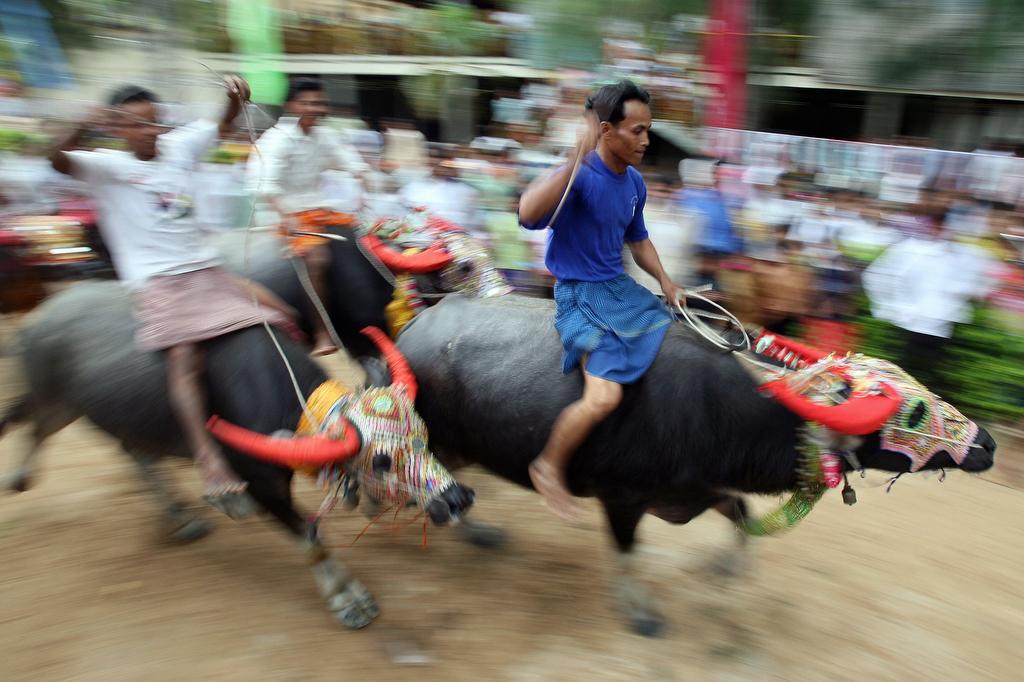
It's all very well to offer copious amounts of food and drink to the spirits of the dead, but they also need to have some fun while they are back in the living world. That's where buffalo racing fits in. On the last day of Pchum Ben, the most important religious festival in Cambodia that falls in September or October, buffalo races are held around the country to entertain the spirits of the deceased. And after two weeks of waking up at the crack of dawn to prepare sweet sticky rice and other specialties for monks and their ancestors, many living Cambodians are ready for a bit of fun as well.
3) Gai Jatra, Nepal
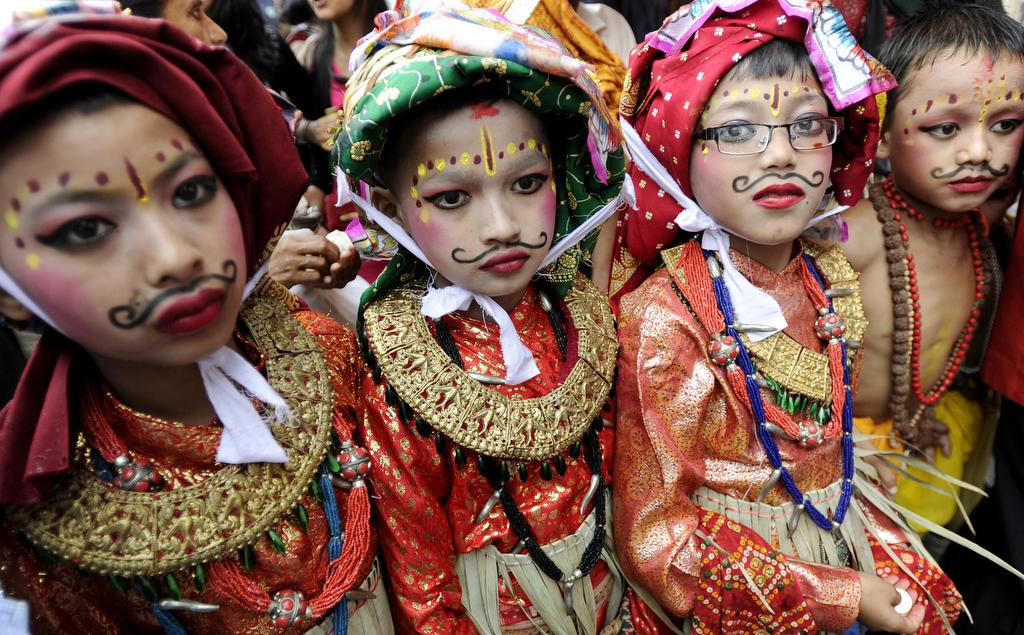
Gai Jatra literally means Cow Festival. The Hindu festival is held in August or September, and commemorates the death of people during the year. Families who have lost a loved one lead a cow in a street procession or, if they don't have the real thing, dress a boy as the sacred animal to help guide the spirit of their relative to heaven. The heavy make-up and elaborate costumes worn by the boys rival anything you will see at Halloween.
4) Qingming, China
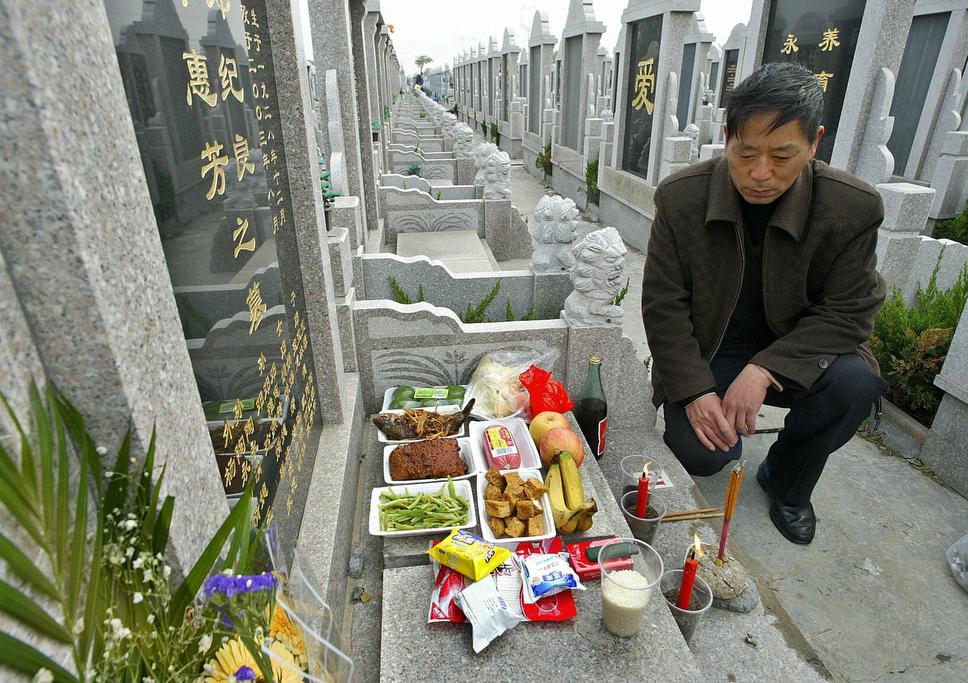
The Chinese take ancestor worship very seriously. Qingming, or Tomb Sweeping Day, is one of several festivals held throughout the year to honor the dead. Others include the Hungry Ghost Festival, the Double Ninth Festival and the Winter Solstice Festival. But Qingming, which falls on April 4 or 5, is the big one for honoring deceased loved ones. Millions of Chinese flock to cemeteries to leave offerings of food and drink on the tombs of their relatives, as well as paper money in case they are running a bit short. They also take the chance to clean the gravesite, hence the name of the festival.
5) Obon, Japan
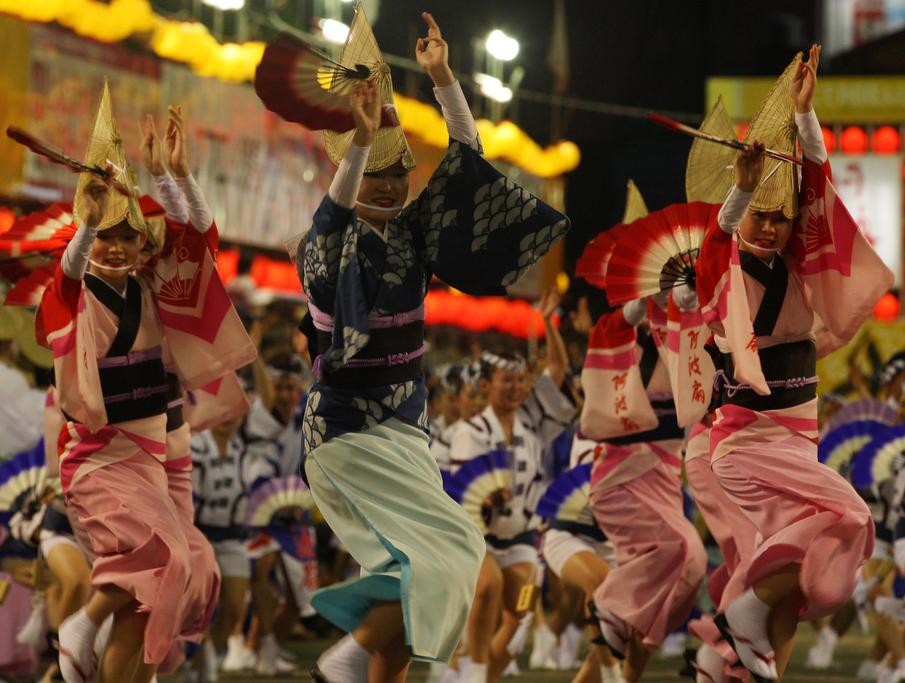
Japanese light lanterns and bonfires to guide the spirits of their ancestors home for Obon every year — a sort of ancient GPS for the dead. The three-day festival in July or August is a time when families gather to commemorate their deceased loved ones, visit their graves, leave food offerings at temples and watch traditional dance performances. At the end of the festival, Japanese light more lanterns so the spirits can find their way back to their own world.
6) Chuseok, South Korea

Dancing in a fish tank is not how South Koreans traditionally celebrate Chuseok, but it does suggest the festival is moving with the times. Chuseok is the Korean version of American Thanksgiving and, not surprisingly, involves a lot of eating. The three-day festival is held in September or October, coinciding with the fall harvest, and is when people offer thanks to their ancestors for the crops. South Koreans typically celebrate by stuffing themselves with rice cakes and other specialties in the company of family and friends. They also visit the grave sites of deceased relatives.
Every day, reporters and producers at The World are hard at work bringing you human-centered news from across the globe. But we can’t do it without you. We need your support to ensure we can continue this work for another year.
Make a gift today, and you’ll help us unlock a matching gift of $67,000!
